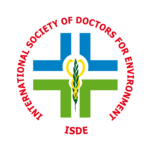
Air: do not consume fuels of “fossil” origin (coal, oil, gas). Whenever possible, use renewable energy (solar, photovoltaic, wind, geothermal, energy-saving buildings) and reduce the use of private vehicles in the city by encouraging the use of: bicycles, public transport, shared private vehicles, pedestrian mobility. Limit travel by plane as much as possible by favoring the use of the train, not necessarily at High Speed. Try to oppose against the fashion of cruise tourism.
Type of practice
Primary prevention and environmental protectionTopic Area
EnvironmentAir pollution is the basis of many respiratory (bronchial asthma, COPD) cardio-circulatory (heart attack, thrombosis, stroke) and neoplastic (lung cancer) diseases. The main causes of air pollution are industrial activity, domestic heating and unsustainable ways of mobility. The doctor must direct the patient towards healthier lifestyles: physical activity (less use of cars and mechanical means of transport such as lifts, etc.) and smoking cessation. Citizens must also favor the use of “clean” energies that improve air quality and lead a life inspired by sobriety to reduce the impact on climate change.
Sources
1. Tamburlini G, von Ehrenstein OS, Bertolini R: La salute dei bambini e l’ambiente: una rassegna delle conoscenze, Ed. italiana, ARPAT, ISDE, 2003.
2. Cori L: Se fossi una pecora verrei abbattuta, Scienza Express edizioni Milano, 2011.
3. Ridolfi R: Progetto ambiente e tumori, Edizioni AIOM Milano, 2011.
4. Haines A, Dora C: How the low carbon economy can improve health. BMJ 2012; 344: 344:e1018 doi: 10.1136/bmj.e1018.
5. Di Ciaula A., Murgia V., Petronio M.G. Inquinamento ambientale e salute, Aboca Edizioni, 2019
Download
PDFAttention. Please note that these items are provided only for information and are not intended as a substitute for consultation with a clinician. Patients with any specific questions about the items on this list or their individual situation should consult their clinician.


Recent Comments